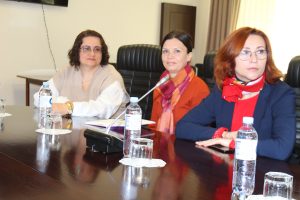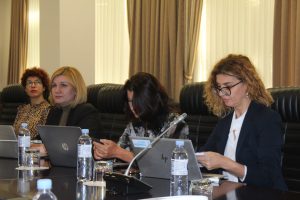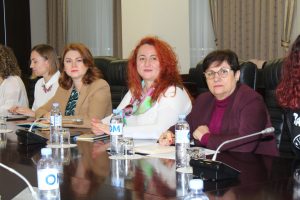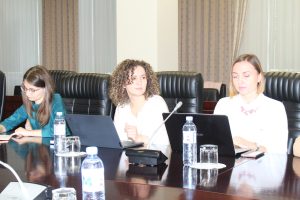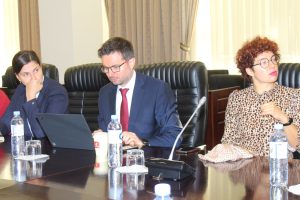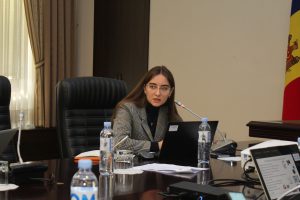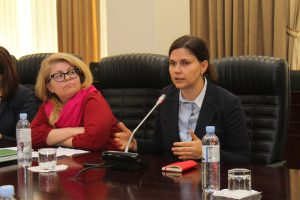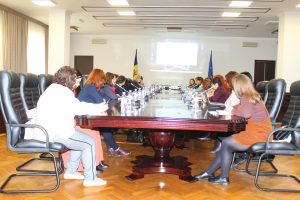ECONOMIC COUNCIL TO THE PRIME MINISTER OF THE RM
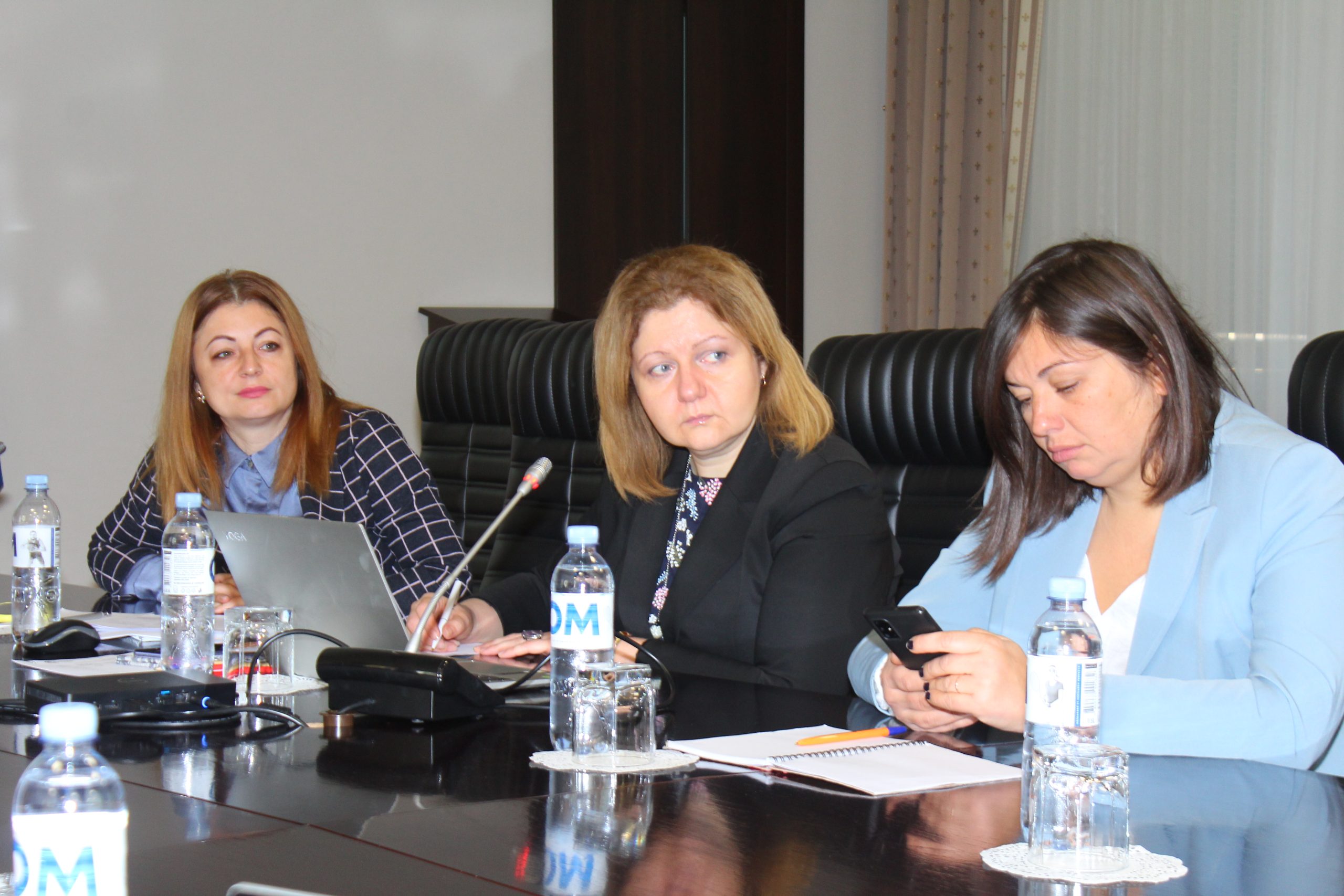
The implementation of the Roadmap for Women’s Economic Empowerment is gathering momentum. 21% of the actions in the document are already completed or in the process of being implemented just four months after its launch. This was announced at the meeting of the Working Group on Women’s Economic Empowerment within the Economic Council under the Prime Minister of Moldova.
At the same time, since the launch in May 2022, several development partners such as UNICEF, UNFPA, GIZ, EBRD and others have joined the Roadmap with concrete actions. This has helped expand the groups of actions from 12 to 19. The number of actions has also increased from 47 to 63.
According to the expert of the Secretariat of the Economic Council Viorica Antonov, the actions conducted include: 1) ensuring the legal framework for the integration of equal pay principle. The Labour Code has been amended to include measures to increase the transparency of the payment system and a requirement that all employers use a fair performance appraisal system; 2) promoting the reconciliation of work and family life. Legislative changes have been made regarding family allowances for families with children, in force on 1 September 2022. The changes extended the period of paternity leave from 56 days to 12 months after the birth of the child. The draft law on alternative childcare services and the draft health regulation of these services were also prepared and publicly debated in the Parliamentary Committee on Social Protection, Health, and Family in October. 4). prevention of occupational segregation through career guidance and mentoring programmes for girls and women. The draft of the Employment Policy for 2022-2026 was developed and approved at the meeting of the General Secretaries on July 14, 2022. The objectives of the project include increasing the participation rate of women aged 25-34 from 44% to 48% and the employment rate of women aged 25-34 from 43.2% to 47.2% by 2026 and reducing informal employment among women and men from 22.9% in 2021 to 19% by 2026. The project is to be managed by the Ministry of Labour and Social Protection. Achievements also include the information campaign on the need and value of implementing the principle of equal pay for equal work, launched in August by the Economic Council Secretariat in partnership with UN Women Moldova and with financial support from Sweden. It targets employees and employers in both the real sector of the economy and the public sector on the need for transparency of pay for filling vacancies through job competitions.
Present at the meeting, the Chair of the Working Group Stella Jemna, Head of the Prime Minister’s Office, welcomed the increased interest of all stakeholders in the process of implementing the principles of women’s empowerment in Moldova and called on all actors to get involved in their promotion. “We are ready to provide all necessary support in the implementation of the Roadmap for Women’s Economic Empowerment”, Stella Jemna added.
The meeting also debated the barriers and challenges that hinder women’s economic activity, and what actions will be included in the roadmap as a response. Veronica Arpintin, National Programme Manager for Moldova, EBRD ASB, welcomed the work of the Working Group, noting that the EBRD Business Advisory Team, which implements the Swedish-supported Women in Business programme, is making progress in the number of active women-run companies accessing the advisory service and training programmes. By 2022 this figure has increased to 15% of EBRD beneficiaries. According to Veronica Arpintin, on average, among EBRD beneficiaries accessing consulting services, women-led companies have 30-40% lower sales than men-led companies. At the same time, among the challenges facing companies are gender stereotypes, which need to be eliminated through joint action.
EBRD data also show that in Moldova the share of women in the management of medium and large companies is about 1%, i.e., women with the same education as men are not promoted or hesitate to advance and develop their businesses. “We encourage the members of the working group to consider expanding/initiating actions, which address stereotypes about the role of women, access to markets and finance as well as encouraging female entrepreneurship,” added Veronica Arpintin.
Tatiana Udrea, UN Women Economic Empowerment Program Coordinator in Moldova, noted at the working group meeting women own or manage businesses in a lower proportion than men (33.9%), and more frequently than men own micro businesses (90.3% versus 82.3%) and rarely own medium and large businesses (1.3% versus 3.3%). This is due to the fact that it is difficult for businesswomen to combine family life with professional life. To solve these problems, it is necessary to develop preschool childcare services, and day-care services, including in private companies, and offer tax facilities for such companies, Tatiana Udrea added, noting that these are international practices.
For her part, Diana Crudu, President of the Association of Women in Agriculture and Tourism “Eurocivis” argues that there are a number of barriers to female entrepreneurship, such as lack of funds and limited access to finance, limited access to markets, as well as complex procedures, excessive certification, and compliance requirements. To be successful, women entrepreneurs and producers in the agricultural sector need to know how to sell online, how to register a trademark, how to get an ISO certificate, and others. They also need to benefit from exchanging experiences with women farmers from other regions and countries. Financial and digital education for women are also areas that need to be developed, Diana Crudu added.
Elena Maevski, Programme Coordinator at the Moldova Electronics Association, says that according to a recent study conducted by UN Women, young women in Moldova are not at all interested in STEM and ICT fields, largely from the stereotype that these professions are dominated by men. This while there is an acute shortage of personnel in all these areas, Elena Maevski added. For example, the number of women employed in STEM and ICT fields is very low, only 31% of jobs in the sector and 19% in digital professions. Therefore, raising public awareness about the image of women in electronics is an asset, as well as a mentoring program for girls and women in this industry, Elena Majewski also added.
For her part, Marina Albu, President of the National LEADER Network in Moldova, noted that women in rural communities are successful in business, but also need financial support to achieve more. Women are most active in local initiative groups (LAGs). Of the 48 LAGs set up so far, 15% are led by women. LAGs bring rural communities to a higher level of development, so specific actions in the roadmap can be implemented locally.
The proposals emphasized during this meeting will be systematized by the Secretariat of the Economic Council and the most relevant actions will be included in the Roadmap, which will be updated and published on the official page of the Economic Council.


The Secretariat of the Economic Council to the Prime Minister is supported by the European Bank for Reconstruction and Development, funded by the UK Government’s Good Governance Fund.
Stay ahead in a rapidly world. Subscribe to Prysm Insights,our monthly look at the critical issues facing global business.


